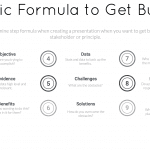5 Key Strategies to Build an Impactful Personal Brand in Luxury Real Estate
In today’s luxury real estate market, the weight of leadership is complicated by pressing demands—scaling elite teams, recruiting top talent, and planning thoughtful exits. Your personal brand is no longer a simple marketing tool; it is a strategic asset that shapes perceptions among partners, clients, prospects, and your own team. This subtle yet powerful influence extends beyond self-promotion to become a defining pillar of brokerage legacy and operational strategy.
For brokerage owners and veteran team leaders in the top echelons of the industry, building and optimizing a personal brand requires a measured, operationally savvy approach. The following five strategies address these nuances, delivering a framework that advances influence, embeds consistency, and leverages technology and data to achieve meaningful, measurable growth.
1. Define Your Purpose as a Strategic Brand Driver
“The best personal brands are built when an individual is focused on being the messenger, not the message.” — Simon Sinek
Luxurious property markets demand leadership with clarity and direction. Begin by articulating a brand purpose that transcends transactions—it must reflect the unique impact you intend to have in the luxury space. This purpose serves as the North Star for all branding efforts, messaging, and recruitment efforts.
By defining how your expertise elevates client outcomes, team culture, and market innovation, you position yourself not merely as a salesperson, but as a purposeful industry leader with long-term vision. This clarity is essential when recruiting top agents who seek alignment with values and mission, rather than just commission splits.
2. Audit and Optimize Online Presence with Data-Driven Insight
“Your personal brand is what people say about you when you’re not in the room.” — Jeff Bezos
Conduct a rigorous audit of your digital footprint across search engines, social media, professional networks, and niche luxury platforms. According to CareerBuilder, 70% of employers screen candidates on social media, underscoring the importance of a consistent, polished online presence aligned with your brand purpose.
Utilize specialized AI-powered tools, such as the RE Luxe Leaders™ AI Brand Auditor, to generate real-time insights on engagement, content resonance, and brand sentiment. These technologies allow you to optimize profiles, identify gaps, and scale personalized interactions effectively.
Ensure visuals, bios, and content themes reflect the sophisticated values that resonate in the luxury market. Consistency here reduces cognitive friction and builds credibility among high-net-worth clients and elite agent prospects alike.
3. Establish Thought Leadership That Attracts Elite Talent & Partners
“Thought leadership is the highest form of authority in the market.” — Forbes
Top brokerage leaders position themselves as trusted advisors, not mere agents. By consistently sharing insights through well-researched articles, executive briefings, or speaking engagements, you demonstrate mastery and invite dialogue within your market segment.
LinkedIn’s research indicates 55% of decision-makers vet organizations based on thought leadership. This influence extends well beyond client acquisition—it plays a pivotal role in attracting and retaining high-caliber agents who seek to affiliate with industry-recognized leaders.
Integrate earned media mentions, podcast interviews, and speaking dossiers into your brand narrative, showcasing measurable reach and credibility. These efforts compound your influence and create a pipeline of top talent and strategic partnerships.
4. Develop a Scalable, Strategic Content Plan Backed by KPIs
“Content builds relationships. Relationships are built on trust. Trust drives revenue.” — Andrew Davis
Content is the connective tissue of your personal brand—deliberate, measurable, and recurring. Develop a content calendar that balances “you-driven” personal stories, “news-driven” industry trends, and “relationship-driven” collaborations such as interviews or panel discussions.
Set clear KPIs linked to your core goals—lead generation, recruitment inquiries, or media mentions—and use analytics dashboards to evaluate traffic, engagement, and conversion metrics across channels. This data-centric approach enables agile refinement and maximum ROI from your personal brand investments.
Consider leveraging automated tools and AI content assistants to maintain regular cadence without sacrificing quality—critical for leaders managing multiple markets or teams. Content alignment with your core values reinforces brand consistency in all online and offline touchpoints.
5. Embrace Authenticity to Differentiate and Build Long-Term Trust
“Authenticity is the daily practice of letting go of who we think we’re supposed to be and embracing who we are.” — Brené Brown
In a marketplace flooded with curated facades, authenticity becomes your rare differentiator. For executive leaders ready to scale or plan succession, your genuine voice fosters real connections that outlast transient trends.
This means sharing your professional philosophy candidly, acknowledging challenges realistically, and embracing the diversity of your personal story and leadership style. Authenticity nurtures trust within your team and with high-end clientele, creating a resilient brand foundation that supports long-haul growth and smooth brokerage exit transitions.
Integrate Your Personal Brand Into Brokerage Leadership and Exit Planning
Building a personal brand in luxury real estate is not a siloed task—it must be woven into your broader brokerage strategy. Top-tier leaders leverage their personal brand as a key asset in recruiting and retaining elite agents, enhancing brokerage reputation, and preparing for legacy succession.
Establish brand consistency standards across all touchpoints—agent recruiting materials, client communication, marketing collateral, and team culture rituals. Align these elements so that your personal brand becomes synonymous with your brokerage identity, maximizing synergy and valuation over time.
Furthermore, when planning your exit or leadership transfer, a well-established personal brand commands premium valuation from buyers and cultivates confidence internally. Utilize branding metrics and third-party audits to benchmark brand strength as part of your negotiated brokerage transition.





